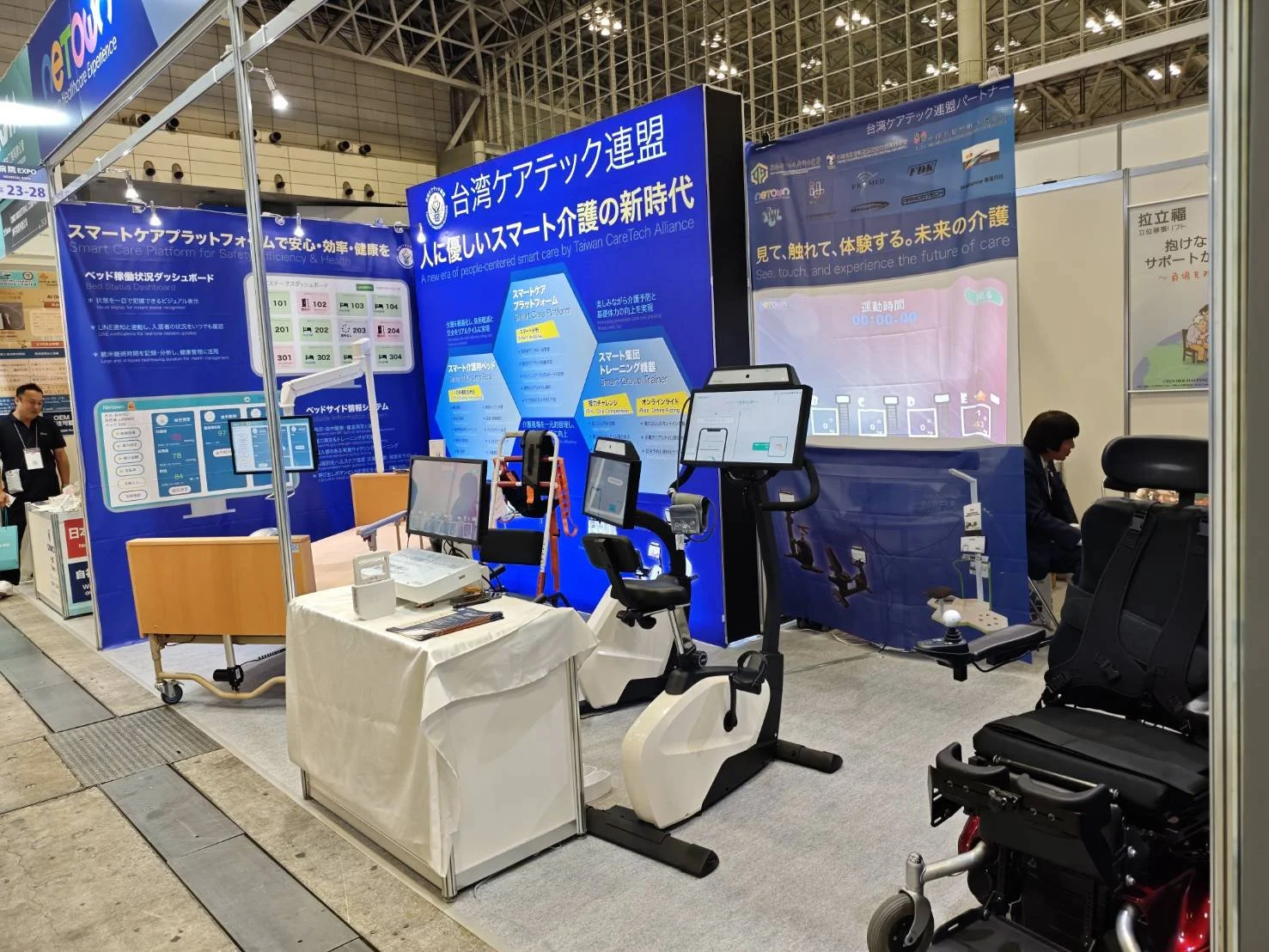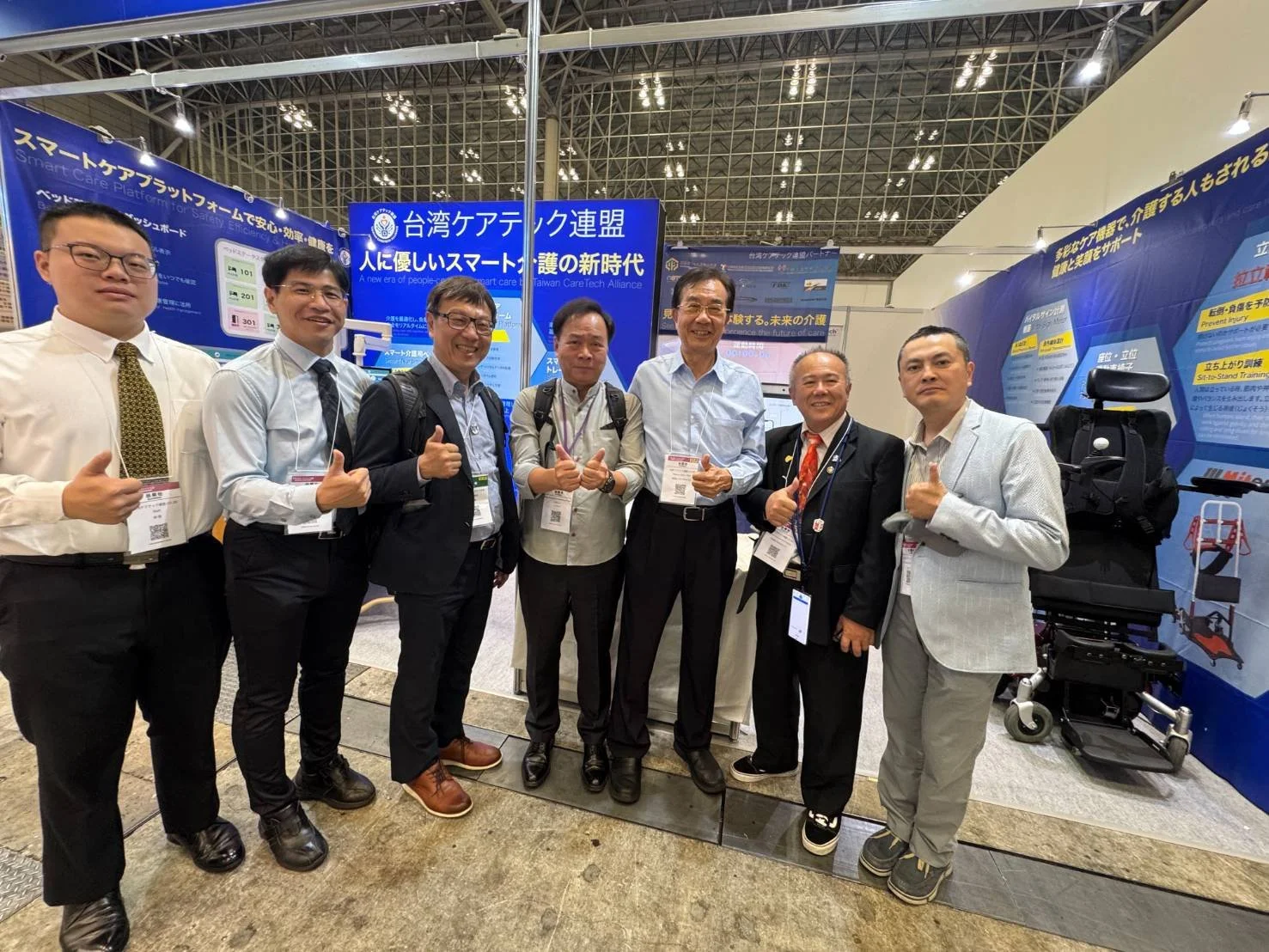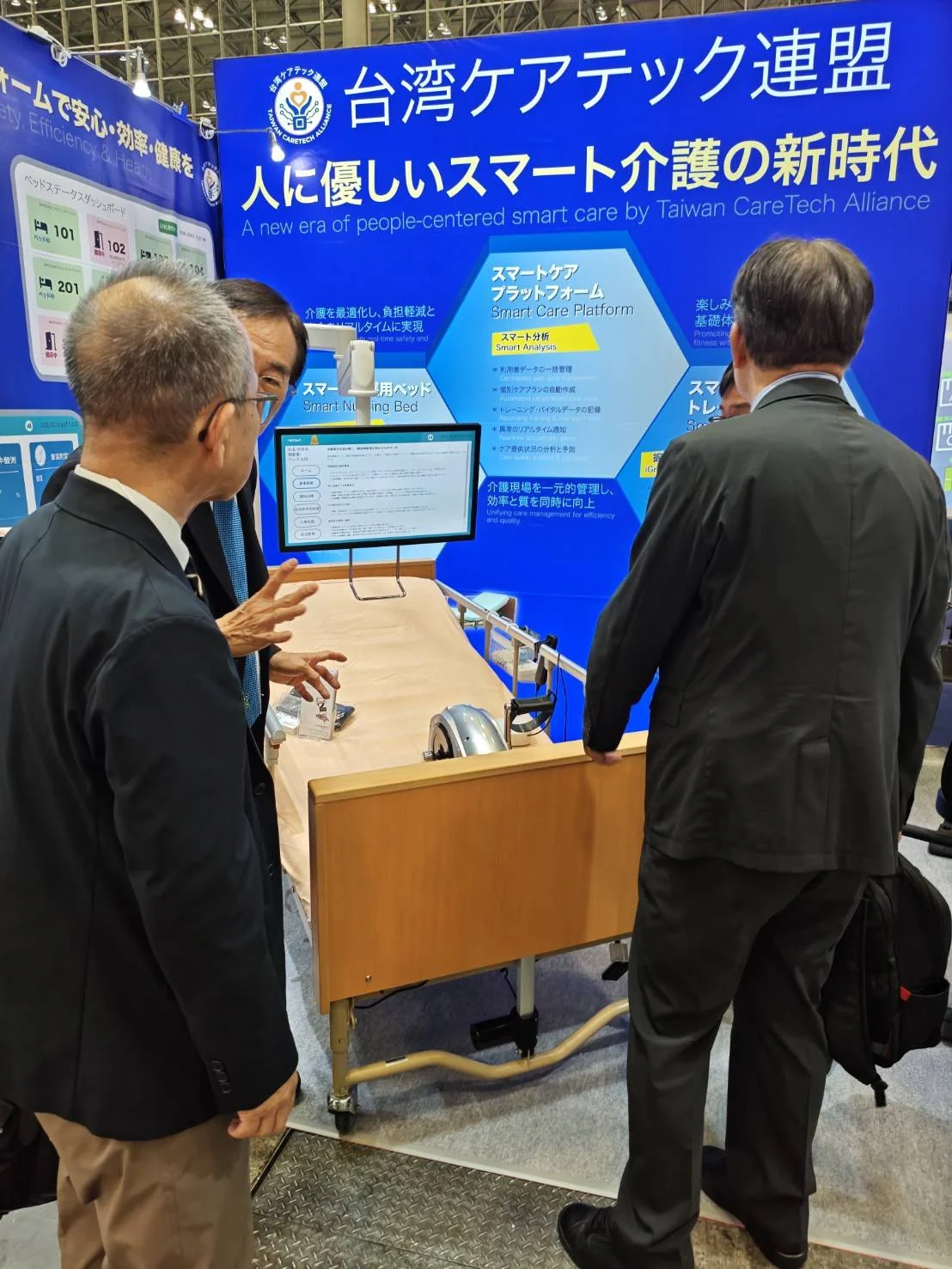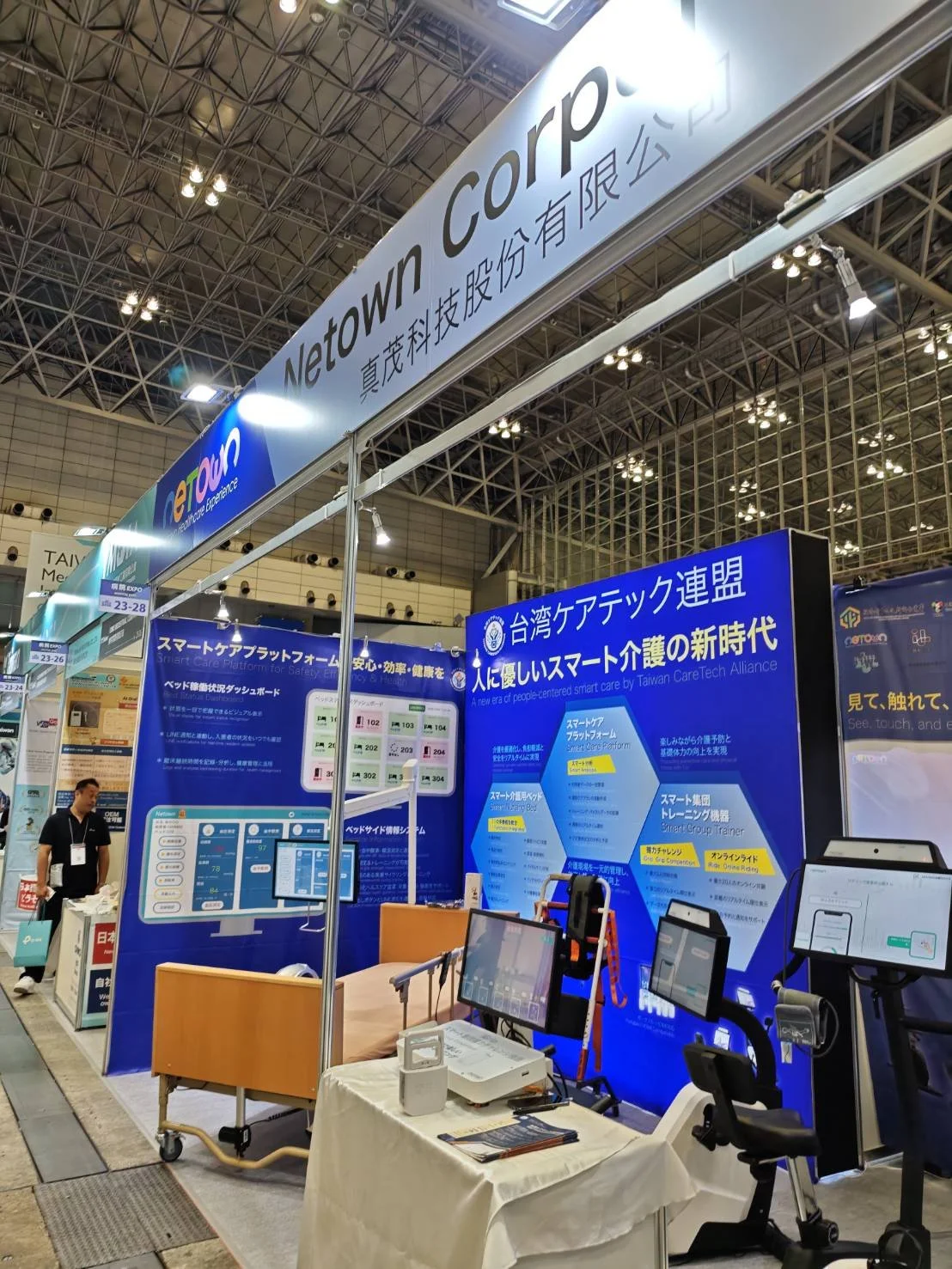Taiwan CareTech Alliance Leverages Smart Technology to Address Japan's Elderly Care Workforce Crisis
Japan’s severe care workforce shortage is accelerating demand for integrated CareTech, and Taiwan is emerging as its most strategic innovation partner. (Source: David Jien)
The global long-term care industry is undergoing a pivotal transformation, shifting from reactive institutional models to data-driven, preventive, community-centered systems. Reflecting this trend, the newly established Taiwan CareTech Alliance (TCA), spearheaded by Netown Corporation and nine key Taiwanese industry partners, has successfully executed a strategic expansion into Japan, the world’s most advanced super-aged society.
The Alliance addresses one of the most pressing challenges faced by nations like Japan and Germany: a critical shortage of skilled care workers. By introducing advanced, integrated care technologies, the TCA demonstrates how cross-border collaboration can help sustain quality eldercare while mitigating workforce constraints.
(Source: David Jien)
Innovation Aligned with Japan’s “Care 2.0” Needs
The TCA’s offerings are specifically designed to meet the evolving demands of Japan’s care system, which emphasizes technological integration to enhance efficiency and quality of life. The Alliance’s flagship solutions include:
Smart Nursing Bed System: Beyond basic safety monitoring, this platform integrates AI-driven algorithms and multi-functional sensors to enable predictive care. Staff are alerted to potential health deterioration before acute events occur, reducing hospital readmissions and easing caregiver workload.
Smart Group Trainer: Focused on frailty prevention, this interactive rehabilitation system uses personalized protocols to boost muscle endurance and social engagement, directly supporting Japan’s goal of extending healthy life expectancy (Kenkou-Jyumyou).
(Source: David Jien)
Strategic Partnerships and Global Trend Alignment
The TCA’s market entry has already secured over US$890,000 in overseas orders, validating several global trends in CareTech:
Cross-Border Specialization: Combining Taiwan’s hardware and software integration strengths with Japan’s clinical expertise, the Alliance demonstrates that successful internationalization relies on complementary ecosystem partnerships.
Data-Driven Prevention: Moving beyond standalone robotics, the Smart Nursing Bed and related solutions generate actionable data, enabling predictive maintenance models for human health and optimized staffing.
Localization for Scale: The Alliance has secured MOUs with Japanese entities such as citrus株式会社シトラス, a leading care facility operator, and the Kyushu Medical Equipment Group Federation, ensuring clinical validation and operational adaptation to local standards.
Market Impact and Global Outlook
The TCA’s success in Japan underscores the rising global reliance on Smart Assistive Technology. Across Europe, governments are investing heavily in AI-enabled monitoring, telehealth, and integrated digital care platforms, while programs like the EU’s “Aging in Place” initiative emphasize preventive, community-based solutions. In the United States, nursing homes are piloting predictive analytics, robotics-assisted rehabilitation, and remote patient management to reduce hospitalization rates and improve care quality.
Japan remains the global frontrunner: its Ministry of Health, Labour and Welfare (MHLW) is actively implementing "Care 2.0" reforms focused on interoperability, sensor-rich nursing homes, and AI-assisted care documentation. These developments confirm a worldwide shift toward technology-enabled, data-driven care ecosystems, with Japan serving as the leading testing ground for scalable innovations.
(Source: David Jien)
Regional Trend Analysis and Economic Implications
Within the Asia-Pacific region, Japan and South Korea—nations with the highest aging rates—are emerging as critical testbeds for CareTech solutions. Taiwan’s ability to rapidly develop user-friendly, cost-effective, integrated technologies positions it as a key regional supplier. The TCA model demonstrates that cross-border alliances combining technical expertise, operational know-how, and local partnerships can advance unified elderly care ecosystems.
The TCA’s early success in Japan also serves as a blueprint for other nations seeking to leverage digital innovation in addressing aging populations. For specialized SMEs, such targeted international collaboration offers high-return opportunities within the $600 billion global longevity market, reinforcing the economic potential of strategic, technology-enabled care solutions.
🚀 Connect with Global Leaders in Aging & Care Innovation!
Sourcingcares links international partners in aging care, long-term care, and health technology, fostering collaboration and driving solutions for a changing world. Our initiatives include Cares Expo Taipei, where the future of elder care takes shape!
🔗 Follow us for insights & opportunities:
📌 Facebook: sourcingcares
📌 LinkedIn: sourcingcares
📍 Explore more at Cares Expo Taipei!
Sources by Media Outreach




